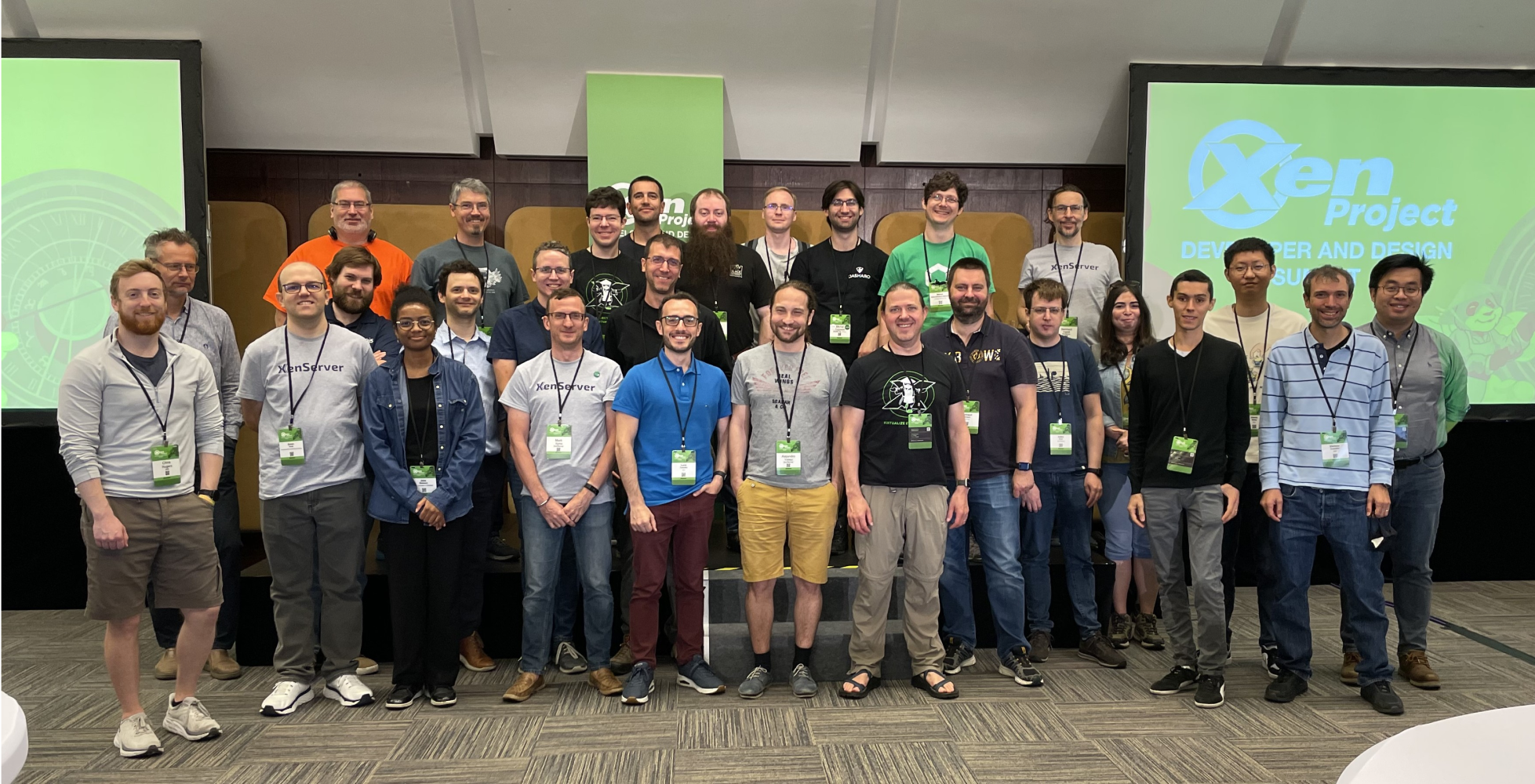About Xen Project
A global open source community
Xen (pronounced /’zɛn/) Project has its origins in the ancient Greek term Xenos (ξένος), which can be used to refer to guest-friends whose relationship is constructed under the ritual of xenia (“guest-friendship”), which in term is a wordplay on the idea of guest operating systems as well as a community of developers and users. Learn about the project’s interesting history here.
The community follows a number of principles, including Openness, Transparency, Meritocracy, and Consensus Decision Making.
Find out more about how the community governs itself.


The Xen Project is the home for several virtualization-related open source projects. The community is focused on advancing virtualization in a number of different commercial and open source applications, including server virtualization, Infrastructure as a Services (IaaS), desktop virtualization, security applications, embedded and hardware appliances, and automotive/aviation.
Software hosted on XenProject.org is, and always will be, open source. The code is licensed under the GNU General Public License (GPL2). Our community follows a governance process based on openness, transparency, and meritocracy.

History

Open-source technologies
The Xen Project has created a number of open source technologies for specific purposes:
If you are unsure which technology is right for you, check out our team portals. In addition, read the Xen Overview document to learn about Xen’s architecture, components and some of the key choices you will have to make.
The Xen Project Hypervisor is the open source standard for hardware virtualization and the foundation for all solutions hosted on the Xen Project website. It includes a build configuration for Arm that targets embedded and mobile devices on the Arm architecture.
Drivers for the Xen Project Hypervisor are delivered with host operating systems such as Linux and BSD distributions. The project maintains Windows drivers, which are developed as part of the Windows PV Drivers project.
XAPI is a Xen Project toolstack for an enterprise-ready virtualization platforms based on the Xen Hypervisor. XAPI adds further management functionality to Xen and adds many integrations for cloud, storage, and networking solutions. XAPI is used by the Citrix Hypervisor, XCP-ng and Magrana Server.
The project also hosts a number of Unikernel technologies: Unikraft, which is an SDK to build Unikernel bases; Mirage OS which is a Ocaml based Unikernel.
A Linux Foundation collaborative project

